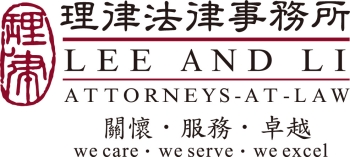The internet tech boom has led to a dramatic rise in the number of new works. However, this influx of new inventions has led to a corresponding increase in the number of orphan works – works which remain protected by copyright laws but for which the original copyright owner cannot be identified. As a result, many people are finding it increasingly difficult to comply with the prevailing Copyright Act, which requires the authorisation or consent of a copyright owner before the work may be used. To promote the circulation and use of works while maintaining fairness between copyright owners, users and the greater social good, the Taiwan Intellectual Property Office (TIPO) recently proposed an amendment to the Copyright Act that would add rules to govern orphan works.
At present, the only regulation in Taiwan that applies to the use of orphan works is found under Article 24 of the Law for the Development of the Cultural and Creative Industries. However, the scope of applicability of the law is limited to cultural and creative industries. Therefore, in light of recent developments and to ensure greater conformity between mandates and the law, as well as taking into consideration TIPO's Regulations Governing Application for Approval of License of Works of Unknown Owner of Copyrights and Royalties for Use Thereof based on Article 24 of the Law for the Development of the Cultural and Creative Industries, TIPO has proposed an amendment to the Copyright Act to expand the scope of applicability pertaining to the use of orphan works. The draft amendment is based on the precedent regulations contained in Article 24 of the Law for the Development of the Cultural and Creative Industries and Article 67-2 of Japan's Patent Act.
In cases where a user intends to use a work and has made a reasonable effort to obtain authorisation but failed to do so because the identity or domicile of the copyright owner is unknown, the language of Article 80 of the third draft of the amended Copyright Act (announced by TIPO on October 30 2015) would allow the user to apply to the competent copyright authority to have a compulsory licence issued for the work in question. If the competent copyright authority approves an amount for royalties and a licence, the user would then be able to use the said work within the scope of the licence after paying the royalty rate. In addition, to protect the interests of copyright owners of orphan works, the amendment also stipulates that the royalty rate would have to be equivalent to reasonable royalties paid for comparable works as determined through free negotiation. Thereafter, the licence granted by the competent copyright authority would be announced by appropriate means.
In addition, to ensure that orphan works can be accessed in a timely manner and to facilitate more efficient reviews by the competent copyright authority, Article 80 stipulates that after filing a deposit a user would be permitted to access a work during the review period of the competent copyright authority. Thereafter, the remaining procedures would be handled as follows:
- If granted a licence by the competent copyright authority, a user who files a deposit to obtain advance access would not be required to make a further deposit if the initial deposit does not exceed the approved royalty rate; otherwise, a payment would have to be made to cover any shortfall. Likewise, any amount exceeding the approved rate would be returned to the user on application.
- In cases where a licence is not granted by the competent copyright authority, the user would be required to immediately cease using the work and deduct from his or her deposit an appropriate amount of royalties based on the approved royalty rate for the period of advance access. Any excess amount of the deposit would be returned to the user on application or, in the case of a shortfall, the user would be required to pay the difference of the outstanding balance.



